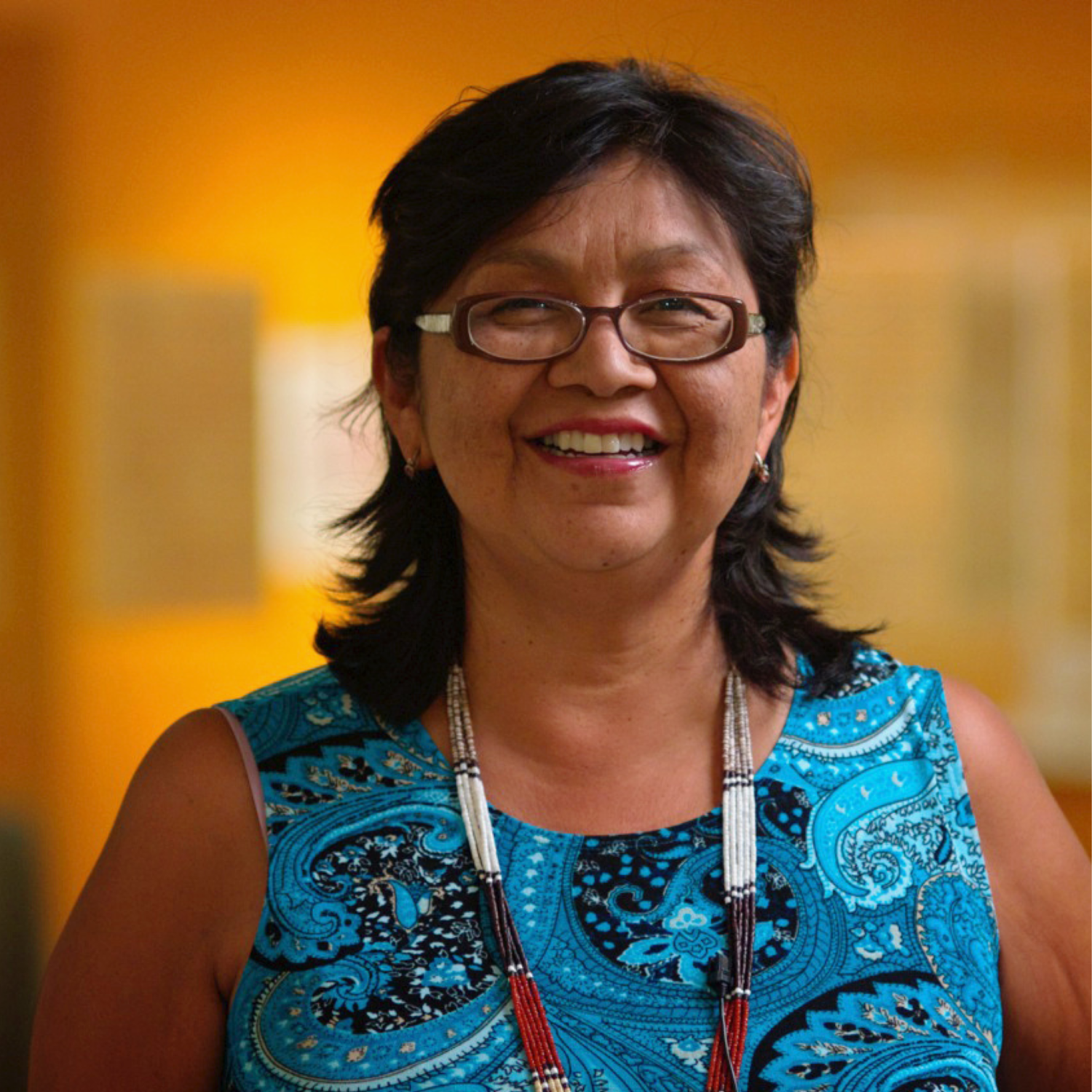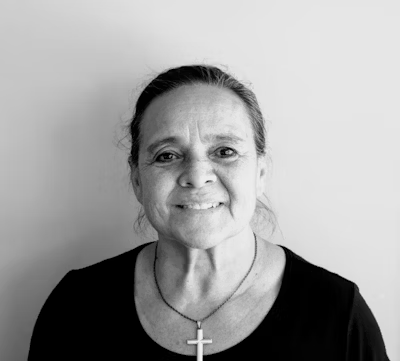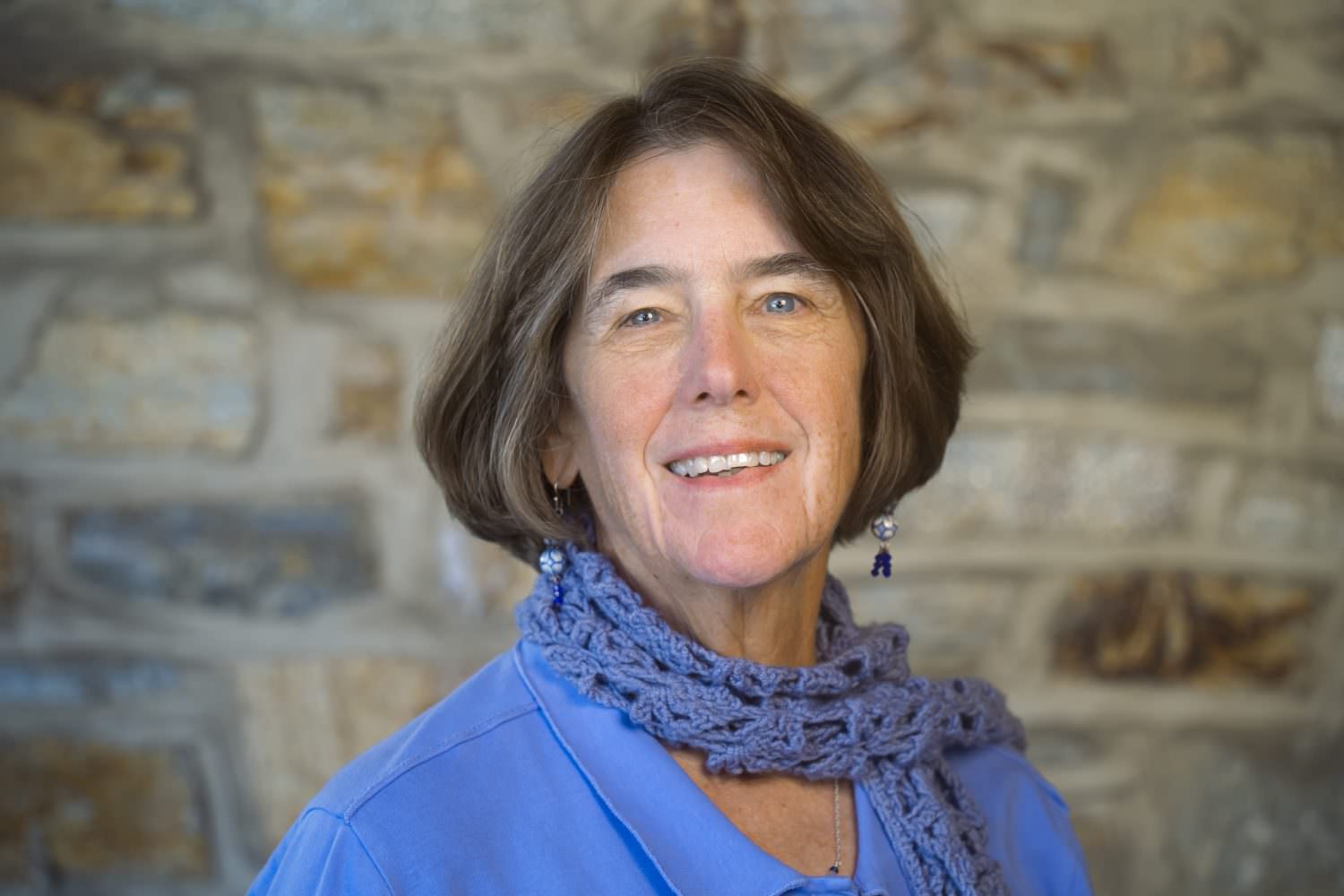2024 AFS Annual Meeting Presidential Invited Plenary: Equitable Pathways Connecting Education & Community: A Conversation with Local Leaders

The Presidential Invited Plenary for the 2024 Annual Meeting features University of New Mexico (UNM) Professor of American Studies Dr. Jennifer Nez Denetdale (Diné) and NEA Heritage Fellow and UNM Professor Emerita Eva Enciñias in a conversation focused on their respective and collaborative cultural and educational work in New Mexico. The conversation will be facilitated by AFS President Amy Skillman. The plenary will take place Saturday, November 9, 5:45–7:15 pm MST at the ballroom at the Annual Meeting in Albuquerque and livestream available for registered participants. The title of the plenary is “Equitable Pathways Connecting Education & Community: A Conversation with Local Leaders.”
Registration is required to view the 2024 American Folklore Society Presidential Invited Plenary.
Denetdale is a Diné feminist and Chair of the UNM Department of American Studies who has been recognized for her scholarship and service to her nation and community. You can visit her groundbreaking co-curated exhibit, “Nothing Left for Me” at the Maxwell Museum. Encinias has taught countless students the art of flamenco in the region, and played a pivotal role in institutionalizing it at UNM. She is the founder of the National Institute of Flamenco, based in Albuquerque.
About Jennifer Nez Denetdale

As the first-ever Diné/Navajo to earn a Ph.D. in history, Dr. Jennifer Nez Denetdale is a strong advocate for Indigenous peoples and strives to foster academic excellence in the next generation of students devoted to supporting Indigenous nations and their claims to sovereignty. Denetdale is a Professor of American Studies at the UNM and teaches courses in Critical Indigenous Studies, Indigenous Feminisms & Gender, Indigenous Films, Diné Studies, and Southwest Studies.
Her book, Reclaiming Diné History: The Legacies of Navajo Chief Manuelito and Juanita (2007) was published by the University of Arizona Press and set the standard for Diné histories and methodologies. Her book for young adults, The Long Walk: The Forced Exile of the Navajo (2007), was published by Chelsea House. She was appointed to the Navajo Nation Human Rights Commission as a commissioner by the Navajo Nation Council and now serves as the Commission’s chair.
As a Diné feminist, she is an advocate for Navajo women and the LGBTQI2S community. She has been recognized for her scholarship and service to her nation and community with several awards, including the Rainbow Naatsiilid True Colors for her support and advocacy on behalf of the Navajo LGBTQI2S and the UNM Faculty of Color Award for her teaching, research and service in the academy. In 2013, she was awarded the UNM Sarah Brown Belle award for service to her community. In the spring of 2015, she was recognized for Excellence in Diné Studies by the Navajo Studies Conference, Inc. In 2017, she was awarded the UNM Presidential Award of Distinction. She is also very proud to have been selected to deliver the inaugural address before the 23rd Navajo Nation Council upon their inauguration in January 2015.
She was recognized for her scholarly achievements and commitment to community service by Northern Arizona University with the Dwight Patterson Alumni of the Year Award and the NAU Cal Seciwa Award, both in 2022.
Currently she is working on several projects: an educational video on Diné perspectives on death, grief and life with the Navajo Nation Human Rights Commission. She is planning a Milton Snow photography exhibition in collaboration with the Navajo Nation Museum and its director, Manuelito Snow. The exhibition is supported by a grant from First Nations Development Institute.
She is co-curator, with AFS Local Organizing Committee Member Lillia McEnaney, of “Nothing Left for Me: Federal Policy and the Photography of Milton Snow in Diné Bikéyah ” at the UNM Maxwell Museum of Anthropology. She was recently awarded a grant from the Navajo Nation to direct the writing and publication of the first ever Diné government textbook for young adults. She continues to work on a memoir about the death of her mother from cancer and a book manuscript about Milton Snow’s photography of Navajo subjects.
(UNM Faculty Profile © The University of New Mexico)
About Eva Enciñias
As a key figure in enriching the New Mexican cultural landscape, Eva Enciñias has devoted her life to building a home for flamenco in the U.S. and for introducing Spain (the birthplace of flamenco) and the larger world to the incredible flamenco created in New Mexico. As a dancer and instructor, Enciñias’ tenacity has rippled throughout generations. Recently, she was recognized for her lifetime work as an NEA Heritage Fellow.
(Photo by Ale Padilla)

The Enciñias family is one of America’s “flamenco families.” Enciñias’ grandmother, Juanita Lopez, was a resadora, a woman who knew the repertoire of traditional alabados (sacred Spanish-language hymns). Enciñias’ mother, acclaimed flamenco dancer Clarita García de Aranda, ran a one-room studio in Albuquerque, from which she taught dance classes since the 1950s. Enciñias was born in Albuquerque into a family that had long embraced Nuevomexicano traditions of music and dance. Constantly surrounded by the guitar and songs of flamenco, Enciñias and her siblings were taught to dance and sing from a very young age by their mother.
Enciñias continued her family’s traditions as she began teaching flamenco dance lessons in her mother’s studio at the age of 14, demonstrating an aptitude and enthusiasm for sharing her passion and knowledge with others. By 1973, she would go on to establish her own dance company, Ritmo Flamenco (Flamenco Rhythm), touring regionally in the Southwestern U.S. for 15 years. In 1976, Enciñias began teaching a flamenco class at UNM, unknowingly embarking on a 43-year career at the university. Enciñias spearheaded the development of both undergraduate and graduate degrees with concentrations in flamenco, the only accredited dance program in the world to boast such specializations.
Enciñias founded the National Institute of Flamenco in 1982, creating varied flamenco programs, including Festival Flamenco Alburquerque, a world-class flamenco festival that has been awarded distinction from Spain as one of the premier flamenco festivals in the world; the Conservatory of Flamenco Arts, a flamenco dance school that has an internationally recognized music and dance curriculum; four performance companies; and two performance venues.
Throughout her career, Enciñias has touched thousands of lives through her generous sharing of flamenco. Her work has been recognized with many awards, including an induction into El Orden de Isabel la Católica, an honor bestowed upon her by the King of Spain, Felipe VI. Enciñias continues to work as the founding director of the National Institute of Flamenco where she directs the programming. She continues to teach flamenco dance classes, teaching the grandchildren and great-grandchildren of the children she taught in the 1970s and 1980s. Enciñias still puts on her flamenco shoes daily, honoring and preserving this cultural heritage for today and for the future.
(Bio composed by: Dr. Annie D’Orazio, National Institute of Flamenco, and Sarah Williams Gonzales, Dance Historian, University of New Mexico)
About Amy Skillman
AFS President (2024 – 2025)

Amy Skillman is the Academic Director of the MA in Cultural Sustainability at Goucher College. Throughout her career, she has worked in non-profit organizations, higher education institutions, and government agencies to design programs that sustain artistic traditions while striving for cultural equity.
Skillman is a folklorist whose work occurs at the intersection of culture and tension, where paying attention to culture can serve to mediate social change and foster cultural equity. She advises artists and community-based organizations on the implementation of programs that honor and conserve their cultural traditions, guides them to potential resources, and works with them to build their capacity to sustain these initiatives. For over 20 years, her work has integrated personal experience narratives of immigrant and refugee women into leadership empowerment initiatives. Working in collaboration with the PA Immigrant and Refugee Women’s Network, she has co-produced an exhibition called Our Voices, a theater piece about Coming to America in the 21st Century, and a reader’s theater called Magnificent Healing, which explores various cultural collisions with our healthcare system. She is currently working with the Susquehanna Folk Music Society to document traditional artists in Central Pennsylvania and create public programming that draws attention to and honors the breadth and depth of their work.
Other work includes a Grammy-nominated recording of Old Time fiddlers in Missouri, a yearlong arts residency with alternative education high school students rooted in the ethnography of their lives, and a traveling exhibition called Making It Better, about the role of folk arts as a catalyst for activism in communities throughout Pennsylvania. She has been teaching in the MA in Cultural Sustainability at Goucher College (MACS) program since 2011 and became Director in 2012. She is a Fellow of the American Folklore Society and a recipient of the society’s Benjamin A. Botkin award for significant lifetime achievement in public folklore.
We sometimes make mistakes, and we are happy to correct any errors that you may come across on our site. If you find an error, please let us know using the “submit a correction” link.